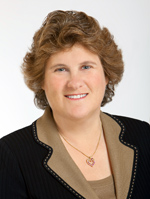By Sheryl Rowling

SAN DIEGO– Dear Money Maven,
I invest in several mutual funds. I was looking at my statements and realized that I have no idea what investments these funds hold. I’m not trying to second guess the managers, but how do I know if they’re investing in companies I wouldn’t want to own? For example, I don’t want my money supporting any businesses in terrorist countries. What can I do?
Sincerely, Sheldon
Dear Sheldon,
It is often difficult to know what is held within a mutual fund without digging into fine print. “Socially responsible” funds will avoid investing in certain types of companies. But what does “socially responsible” mean? To some, it means no investments in companies that support overseas sweatshops. To others, it could include companies that produce tobacco products. Other “social screens” include weapons producers, companies with environmentally unsound practices, companies that experiment on animals, or companies with discriminatory business practices. A socially responsible fund might screen out companies with one, two or more of these undesirable characteristics. It is not always easy to find a fund that screens based on your particular requirements nor is it easy to find a fund that does so consistently while still providing competitive market performance.
So, is there a fund that screens out companies doing business in terrorist countries? According to Mark Langerman, with the exception of his Patriot Fund, “terror-free” funds simply don’t exist.
After attending an AIPAC conference in Washington DC in 2007, Langerman, an investment advisor of 22 years, became aware that almost all mutual funds hold investments in companies that do business in sanctioned terrorist countries. According to Langerman:
• Over 10% of the S&P 500 ($1.4 trillion of the market capitalization) is considered to be terror-infected stocks.
• 8 out of the 10 sectors in the S&P 500 contain companies that operate in countries identified as State Sponsors of Terrorism.
• Companies operating in terror states could be at risk of significant loss because of the instability in these regions.
• As the U.S. is fighting a war on terror, some U.S. companies are providing resources that help the opposition.
Over the following couple of years, Langerman learned more about sanctions and the futility of trying to convince mutual fund managers to divest of these investments. Discovering that fund managers simply didn’t have the ability to look into each company’s business activities, Langerman hired managers to build the Patriot Fund (TRFTX) – a U.S. large cap mutual fund without any connections to U.S. designated state sponsors of terror: Iran, Syria, N. Korea, Sudan.
The goal of the fund is to deliver competitive returns while putting pressure on companies to stop doing business in terrorist countries. The fund has a high expense ratio of about 2 percent. In spite of this, returns have been impressive – the fourth quarter 2013 return was 11.61% and the full year 2013 return was 28.58%. Langerman believes that terror-free investing will ultimately produce excess returns. In his opinion, these countries’ economies are not sustainable since they need other countries’ support in order to survive.
Langerman thinks the fund will look especially attractive to Jewish investors who are increasingly disturbed by public companies’ continued business dealings with Iran and other countries that threaten Israel’s vital security interests.
Examples of stocks not held in the Patriot Fund as of 12/31/13 include:
• General Motors – owns 7% of Peugeot/Citroen, the largest auto supplier to Iran
• Marathon Oil – has operations in Syria
• Proctor & Gamble – has operations in Iran
• KFC – has operations in Syria
• Chili’s – has operations in Syria
The fund draws no distinction in terms of degree of involvement. Says Langerman, “Even small amounts of revenue …where does it go?”
If you want to be sure your investment dollars don’t support companies doing business in U.S. designated terrorist countries, you might want to consider the Patriot Fund. For more information, go to www.patriotfund.com.
(Please note that I am not endorsing or giving any opinions on this fund. Before investing, be sure to contact a knowledgeable investment advisor.)
*
Sheryl Rowling is a certified public accountant, personal finance specialist, and principal of Rowling & Associates. She may be contacted via sheryl.rowling@sdjewishworld.com